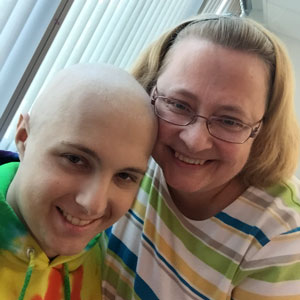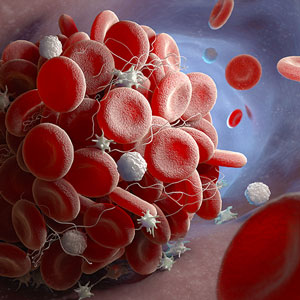-
Facing Cancer and a Pandemic at the Same Time
Cancer patients and their families share stories of fear, love and uncertainty as they find new ways to support each other.
by Jen Tota McGivney
-
Virtual Connection in a Time of Social Distance
Responding to the coronavirus, patient advocates and nonprofits expand existing outreach initiatives and launch new ones.
by Marci A. Landsmann
-
The Puzzle of Pancreatic Cancer
Pancreatic cancer remains a difficult disease to treat and is expected to be the second leading cause of U.S. cancer-related deaths by 2030. Researchers hope clinical trials and insights into the genetics of the disease will reverse the trend.
by Kendall K. Morgan
-
Forward Look
New Guidelines for Radiation Therapy in Pancreatic CancerRecommendations address conflicts and research gaps.
by Ashley P. Taylor
-
Get Involved
Filling a VoidA mother whose son was diagnosed with Burkitt leukemia works to improve access to mental health services for teenagers.
by Elizabeth Rosto Sitko
-
Advocacy in Action
Leaving a LegacyTwo mothers, each with a son who died of brain cancer, worked together to increase awareness and acceptance of tumor tissue donation.
by Esther Landhuis
-
Caregiving With Confidence
Strategies for Effective CommunicationWhen families work together to provide care for a loved one, communicating can become a challenge.
by Ashley Jones
-
A Unified Strategy
A couple who lost their daughter to brain cancer builds a charity that connects parents, hospitals and researchers with data.
by Marci A. Landsmann
-
Forward Look
More Options to Prevent Blood Clots in High-Risk Cancer PatientsUpdated guidelines support use of oral blood thinners.
by Jane Langille
Cancer Talk
Treatment Combination Improves Survival in EGFR-positive Lung Cancer
Adding chemotherapy to targeted therapy improves outcomes for people with advanced EGFR-positive non-small cell lung cancer.
by Sandra Gordon
Lessons From 20 Years Living With CancerMultiple myeloma survivor Jonathan Gluck reflects on uncertainty, and the scientific progress that has kept him living with cancer for more than two decades.
by Eric Fitzsimmons
The Enduring Importance of Cancer Disparities ResearchOpening session from AACR conference highlights how perseverance and adversity have informed cancer disparities research over the years.
by Eric Fitzsimmons
Most Cancer Survivors Don’t Meet Healthy Diet GoalsDespite research linking fruits and vegetables to cancer survival, many people do not change their eating habits after diagnosis.
by Darlene Dobkowski















